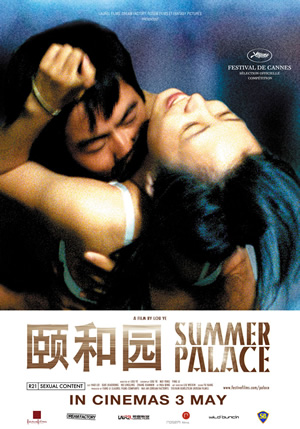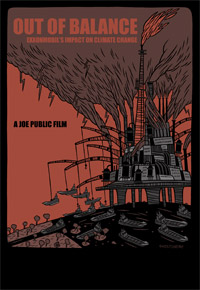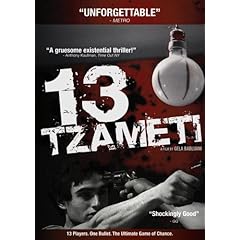 It's going to be almost impossible for me to really, fairly review Gowanus, Brooklyn. As a short film, a visual short story with beginning, middle and end, it's a horrible failure. And yet it's also a complete success, as a compelling piece of drama, a showcase for some good acting on the half of some previously unknown talent, and as a glimpse into the abilities of a talented young filmmaker trying to show the world what he can do. I'm sorry, that last bit might seem hyperbolic, but it's also true, and it needs to be noted because of the success he has with his attempts. Director Ryan Fleck intended this film as the feature-length it would eventually become, 'Half Nelson', and filmed a 25 minute short film/segment to drum up interest and financing. That he eventually succeeded, to critical acclaim, needs to be considered before judging the merits of this film alone.
It's going to be almost impossible for me to really, fairly review Gowanus, Brooklyn. As a short film, a visual short story with beginning, middle and end, it's a horrible failure. And yet it's also a complete success, as a compelling piece of drama, a showcase for some good acting on the half of some previously unknown talent, and as a glimpse into the abilities of a talented young filmmaker trying to show the world what he can do. I'm sorry, that last bit might seem hyperbolic, but it's also true, and it needs to be noted because of the success he has with his attempts. Director Ryan Fleck intended this film as the feature-length it would eventually become, 'Half Nelson', and filmed a 25 minute short film/segment to drum up interest and financing. That he eventually succeeded, to critical acclaim, needs to be considered before judging the merits of this film alone.Stranded at school when her brother fails to pick her up, Drey heads back inside to use the gym's restroom facilities, where she finds one of her teachers, Mr. Dunne, getting high in one of the stalls. She immediately asks him for a ride home. There are brief glimpses of a relationship that may build between the two, wary friendship or outright dependence, but that isn't the focus of this short. Drey seems well adjusted, but sullen, quiet, and lonely, and is obviously disconnected from all aspects of her life. Her mother seems loving, but absent most of the time due to work. Her brother, likewise, seems close to her, but he's older and part of a different world. She has friends at school, but while they chatter and laugh, she seems more interested in clusters of older children hanging out on the street corner. That probably explains why she grasps onto Mr. Dunne; she has something on him, proof of the fallibility of adults, and it brings him down closer to her level. Their both out of place in their own lives, and hiding something from the world. We don't see much of Mr. Dunne, but his misery is clear enough. It's there in his drug problem(always the cinematic sign of misery), and the extended pause he takes after getting into his car before he drives away.
We get a flurry of possible conflicts in this short film, and none of them are anywhere near resolution. Drey's mother has her own sadness and seems to be preoccupied with some horrible thoughts, Drey's brother is apparently involved in some not-quite-legal activities, and of course there's Mr. Dunne and his drug problem, and Drey herself and her alienation. Most of these conflicts aren't directly addressed, but are conveyed by lingering camera takes, and some meaningful glances.
A word should be said about the acting. I actually really like low-budget films and their non-actors. There's something appealing and even emotionally affecting about the sometimes stilted or borderline flat delivery. I like it's rhythm, and it's awkwardness. Not to say that any of that appears here. With the possible exception of the important Mr. Dunne, every single person appearing on screen seems to not even be acting, but to be living these events out. Every one of them is utterly convincing. I don't mean to say that Mr. Dunne, played by Matt Kerr, is a bad actor, but he doesn't seem a perfect fit for a role that should be much more magnetic and, yes, charismatic.
So there, a quick overview of a fantastic short film that should really only serve as a companion piece to a larger work. I find it very encouraging that Ryan Fleck was able to get his feature film made from this short, and look forward to seeing how everything plays out. There are many predictable ways in which this story could go, which we can call the 'after school special' approach, but judging from the work on display here, I don't have much fear about that.
Final Analysis: Would I pay money for a feature film directed by Ryan Fleck(and co-written by Anna Boden, can't forget her)? If it weren't already obvious, I plan on doing so later this week.












